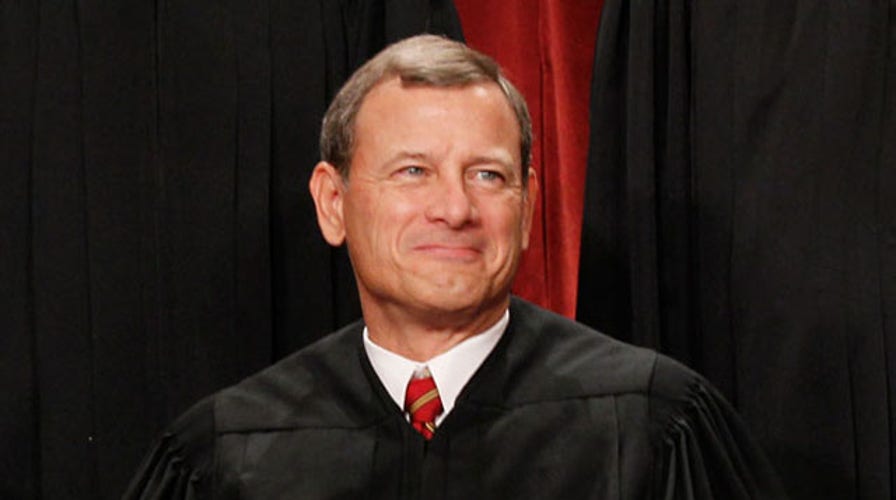A look at the influence of Chief Justice John Roberts
How Roberts will influence the Supreme Court in its upcoming rulings on controversial issues
As the Supreme Court term winds down, Chief Justice John Roberts is being closely watched as he shepherds opinions in some hot-button cases involving executive power and religious freedom through their final drafts.
Appointed by President George W. Bush in 2005, Roberts vowed during his confirmation hearings to act as an umpire, calling balls and strikes but not taking sides. In the majority of the court's most contentious opinions during his time at the helm, Roberts has voted with the conservative wing. However, he scored lavish praise from liberals when he authored the opinion upholding the Affordable Care Act.
Since then, the love from the left has dissipated. Elizabeth Wydra, chief counsel for the Constitutional Accountability Center, said, "When you look beyond the high profile decision in the Affordable Care Act, the Roberts court is undeniably conservative and the chief himself has led the court in an undeniably ideological conservative direction."
Roberts has taken heat from the left for decisions on affirmative action, the Voting Rights Act, campaign finance and prayer at public meetings. Thomas Dupree, Jr., a former Justice Department official who now argues before the Supreme Court, said, "I think the liberals who are critical of those decisions have now viewed the ObamaCare ruling as far off in the distance and (are) not cutting Chief Justice Roberts a lot of slack."
Most court watchers expect Roberts to again side with the conservatives on the remaining hot-button cases. They include assessing the constitutionality of the president's recess appointments to the National Labor Relations Board and the challenge by business owners who say they'll be forced to violate their religious beliefs if they are required to provide employees cost-free access to contraceptives they believe can trigger abortions.
Given his pro-free speech votes on campaign finance, Wydra said she thinks Roberts could be critical in the Health and Human Services contraceptive mandate case. "We could see him taking the court in a new direction in the Hobby Lobby case, recognizing a First Amendment free exercise right for corporations or business owners to press religious claims in the field of employee protections and health care provisions in this case,"Wydra said.
Dupree is cautions, however, "Just when we think we've gotten very confident in how we think these cases are going to come out, particularly these end of the term cases, there's always a curveball or two in there," he said.
The Court's remaining opinions are due by the end of June.





